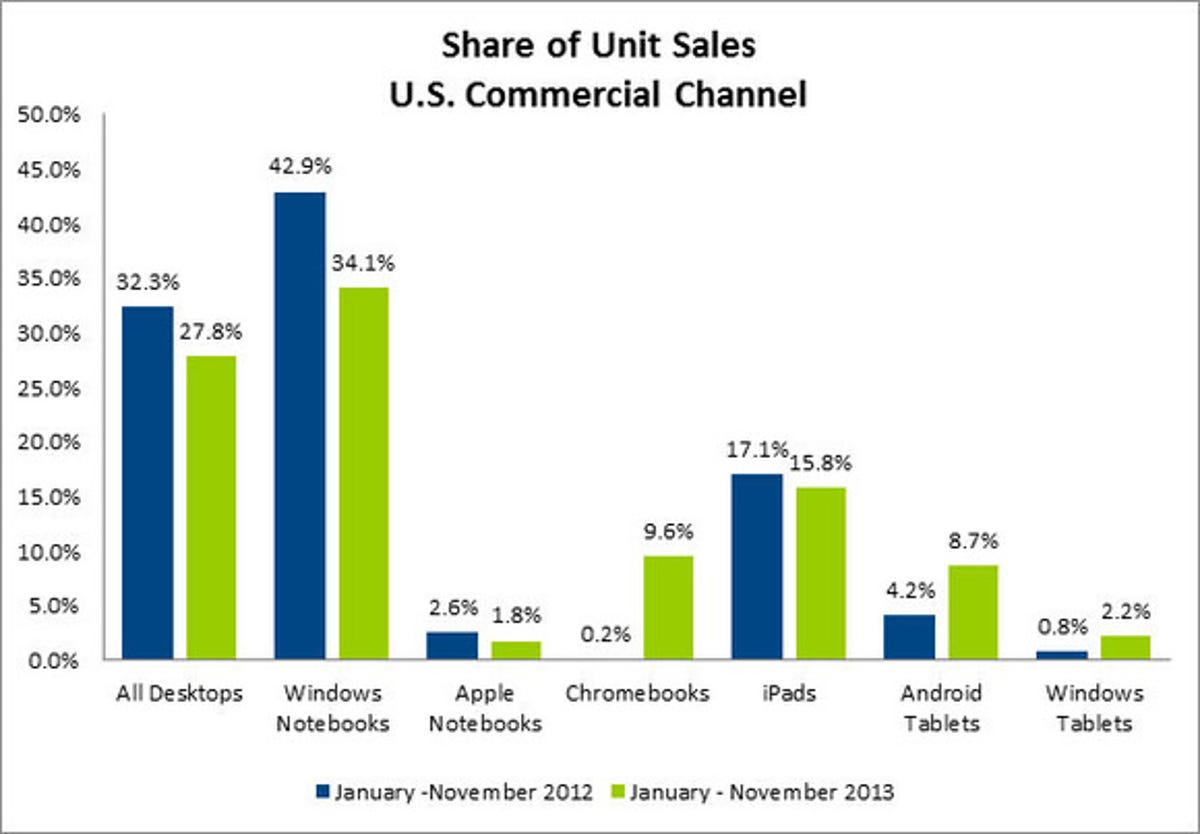Chromebooks grabbed about one-fifth of sales in commercial laptop channels in a 12-month period, up from virtually nothing the year before, according to NPD Group. On the flip side, Windows device sales, with the exception of tablets, have been “tepid” this year.
The sales of Google Chrome OS-based laptops accounted for 21 percent of all notebook sales through commercial channels (“pre-configured notebooks sales”) year to date through November 2013, the largest share increase across the various product segments, NPD said in a report this week.
If that isn’t proof enough of Chromebooks’ rise in popularity, Amazon said Thursday that among laptops, the Samsung Chromebook, Asus Transformer Book, and Acer Chromebook were “holiday best sellers.”
The above comes on the heels of a forecast earlier in the month showing Chromebooks taking about five percent of total laptop sales in 2014. All of this isn’t good news Windows PC sales.
“Tepid Windows PC sales allowed brands with a focus on alternative form factors or operating systems, like Apple and Samsung, to capture significant share of a market traditionally dominated by Windows devices,” said Stephen Baker, an NPD analyst, in a statement.
Traditional PC makers are responding by bringing out new Chromebook models. Dell, for instance, will offer its first Chromebook in January for the educational market, where Chromebooks have been particularly popular.
The world’s largest PC maker, HP, is also putting more emphasis on Google’s Chrome OS and Android. HP sells both the Chromebook 14 and the Chromebook 11. Note: HP is selling its Chromebook 11 again after recalling chargers back in November.
And count Android tablets — which grew 160 percent — among the big sellers too.
Chromebooks and Android tablets collectively had the biggest impact on sales growth, “with 1.76 million units going through the channel from January through November of this year, compared to just 400,000 units in 2012,” NPD said.
There was, however, some positive news for Windows. Sales of tablets running Windows nearly tripled “off a very small base,” said NPD.


NPD Group



